On Expenses, BBC Four
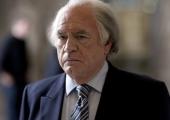

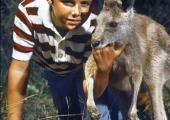
Though children’s TV series Skippy The Bush Kangaroo was only in production from 1966 to 1968, it continues to resonate deafeningly with Australians, who are still apt to break into the theme tune or start doing kangaroo-hops round their living rooms. In fact it isn’t just Australians, since its 91 episodes were shown in 128 countries and dubbed into numerous exotic languages. Swedish was not among them, since Swedish child psychologists were violently opposed to children being encouraged to believe that animals could talk.
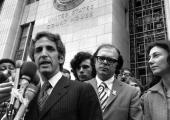
On Daniel Ellsberg's first day in his new job at the Pentagon in 1964, working under Secretary of Defence Robert McNamara, the Gulf of Tonkin incident occurred.
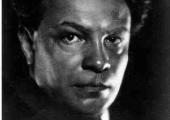
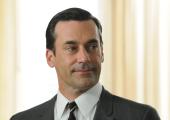
The second season of BBC Four’s artiest import began uncertainly, but season three took off at the gallop. The opening scene of the first episode prised open Don Draper’s closely guarded past with a flashback to his Depression-era infancy, depicting his adoption after the death of his mother (a prostitute). Then we jumped back to the present, where his wife Betty’s pregnancy picked up the childbirth theme. His employer, ad agency Sterling Cooper, is reeling from job cuts in the aftermath of a takeover by a British company, a problematic union which could spell rebirth or stillbirth.
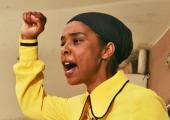
Early on in Michael Samuels’ unremittingly sombre film about Winnie Mandela, the star-crossed heroine made the observation that being married to Nelson meant you were also married to “the struggle”, and would inevitably end up in Nelson’s shadow. So it proved. Even as she went to meet Nelson (David Harewood) as he was finally released after 27 years in jail, Winnie (Sophie Okonedo) was advised to learn from the example of Prince Philip and the way he walks dutifully one step behind the Queen.
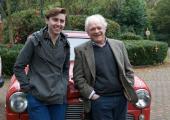
Only Fools and Horses, whose last new episode was broadcast to the traditionally bloated Christmas audience in 2003, has enjoyed several kinds of afterlife. It lives on lexically, in the form of the Peckhamspeak inherited by its viewers – “cushty” and “luvly jubbly”, “plonker” and “dipstick”. It is also frequently exhumed in clips packages and on repeat channels. Then came the spin-off sitcom The Green Green Grass, a fifth series of which is said to be in the pipeline.
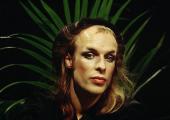
I’ve never been quite sure whether Brian Eno is a musician, or somebody for whom music happens to be the end product of a chain of cognitive processes. Certainly it was music that powered him to prominence, either as the inventor of ambient music, a performer with Roxy Music, or as a collaborator with artists ranging from rock gods U2 and David Bowie to composers Harold Budd and Philip Glass.
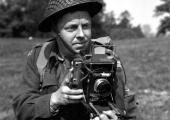
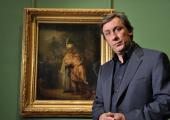
If Andrew Graham-Dixon's arts career ever goes belly-up, there is surely a microphone with his name on it at Radio 4, so warm and confident and trustworthy is his voice. Judging, however, by his new three-part programme on BBC Four, The Art of Russia, there is no chance of this happening soon.